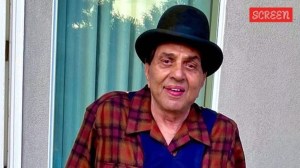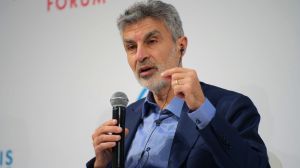Hedge Funds: Paradise and money lost
On February 24, Ronald S. Kochman hurried out of the elevator onto the 17th floor of an office tower in West Palm Beach, Fla., that KL Group...

On February 24, Ronald S. Kochman hurried out of the elevator onto the 17th floor of an office tower in West Palm Beach, Fla., that KL Group, a hedge fund advisory firm, called home. Normally bustling with activity, the place was eerily quiet that morning as Kochman strode past the elegant conference rooms toward his destination: the corner office of Won Sok Lee, one of the firm’s principals.
Two days earlier, SEC officials had unexpectedly visited KL’s offices, demanding to see documents. Now some employees were reporting that Lee was missing — along with nearly all the money in the firm’s accounts.
Kochman, a prominent trust and estate lawyer in the Palm Beach area, had much to lose. Not only had he sunk his savings, about $4 million, into the funds, but he had also put his reputation on the line by urging his own clients to invest with KL, where he had become a principal early last year.
So when someone with keys to Lee’s office asked him why he wanted to go in that morning, a tearful Kochman collapsed on his knees and said, ‘‘It’s gone. It’s all gone,’’ according to a person who witnessed the event. ‘‘The money is missing and Won has jumped ship.’’
Today, the SEC, the Justice Department and a court-appointed receiver are still trying to unravel what happened. Investigators now say they believe that more than $200 million of investors’ money has vanished, possibly making this one of the largest hedge fund frauds ever. In March, SEC sued Lee and two brothers, John and Yung Bae Kim, accusing them of securities fraud.
Three years ago, Lee and the Kim brothers opened a hedge fund advisory business in Palm Beach, one of the nation’s wealthiest enclaves. Driving flashy cars and living lavish lifestyles, the three principals — all Korean-born Americans in their mid-30’s — befriended the right people, who provided them with access to society functions and introductions to their wealthy clients. The aura of success and exclusivity around the firm was so strong that investors often begged to be let into its funds, some of which were said to have astounding annualised returns of 125 per cent for several years.
But few investors want to acknowledge that they were caught up in the frenzy. Donald Trump said he had been contacted about investing in the fund but didn’t because he thought the returns were too good to be true. ‘‘These guys duped a lot of people down in Palm Beach, smart people with lots of money,’’ Trump said. ‘‘These people feel they were conned, and they’re embarrassed. They just don’t want to talk about it.’’ — NYT



- 01
- 02
- 03
- 04
- 05




























